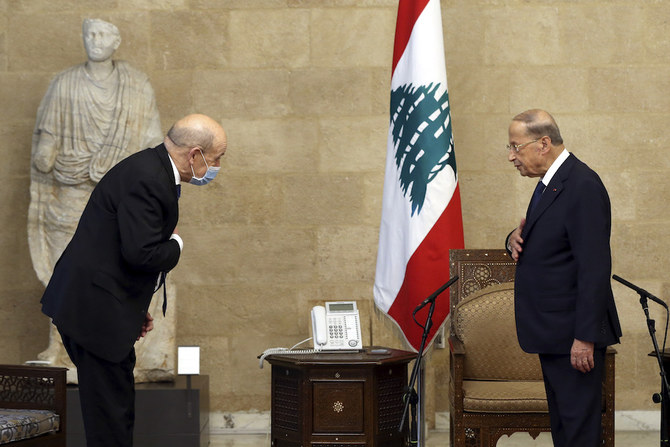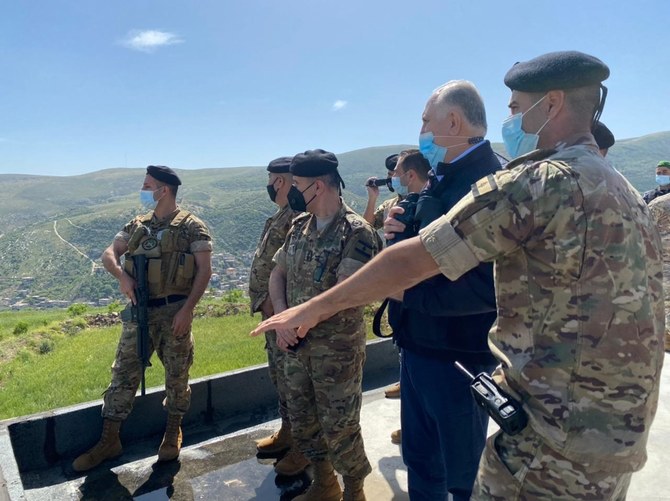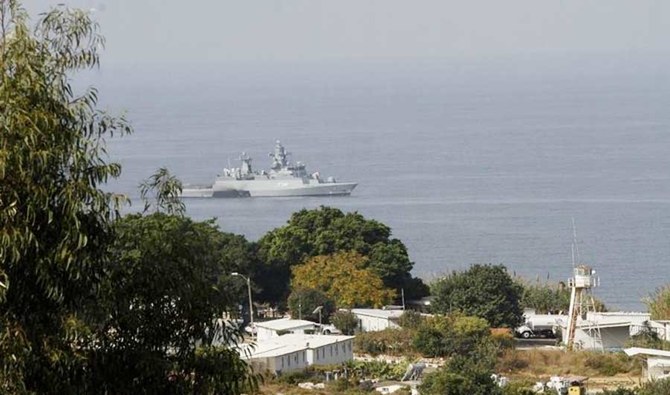
By NAJIA HOUSSARI — arabnews.com — BEIRUT: French Foreign Minister Jean-Yves Le Drian stressed during his meetings with Lebanese officials on Thursday that “the French initiative to solve the crisis in forming the Lebanese government is still in force and the responsibility for implementing it rests with the Lebanese.” Arab News has learned that Le Drian also hinted that sanctions might be imposed against those who obstruct the formation of the new government. On the eve of his arrival in Beirut, Le Drian tweeted that he would deliver “a strongly worded message to political officials and a message expressing our full solidarity with the Lebanese people. We will deal firmly with those who obstruct the formation of the government, and we have taken national measures, and this is only the beginning.” He also said that his visit to Lebanon “confirms France’s solidarity in the field of education, medicine, and archeology as well as its support for the Lebanese who are doing their best for their country.”
Following the Beirut port blast in August, French President Emmanuel Macron announced an initiative to help form a government of specialists to help lift Lebanon out of its economic crisis. However, Macron’s initiative has not yet been implemented, so people in Lebanon followed Le Drian’s meetings with interest. Before Le Drian’s visit there was speculation that he did not intend to meet with Prime Minister-designate, Saad Hariri, but might meet with the leader of the Free Patriotic Movement (FPM), Gebran Bassil. Some had predicted that Hariri would give up his post as PM-designate due to his ongoing disagreement with President Michel Aoun and his political team over the formation of the new government, with Aoun reportedly demanding a ‘blocking third’ for his allies.

![The Lebanese pound has lost more than 85 percent of its value against the dollar since the country decended into economic crisis in 2019 [File: Mohamed Azakir/Reuters]](https://www.aljazeera.com/wp-content/uploads/2021/05/1000-5.jpg?resize=770%2C513)








